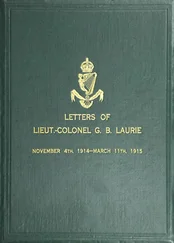George Saintsbury - A Letter Book
Здесь есть возможность читать онлайн «George Saintsbury - A Letter Book» — ознакомительный отрывок электронной книги совершенно бесплатно, а после прочтения отрывка купить полную версию. В некоторых случаях можно слушать аудио, скачать через торрент в формате fb2 и присутствует краткое содержание. ISBN: , Жанр: foreign_language, foreign_prose, на английском языке. Описание произведения, (предисловие) а так же отзывы посетителей доступны на портале библиотеки ЛибКат.
- Название:A Letter Book
- Автор:
- Жанр:
- Год:неизвестен
- ISBN:http://www.gutenberg.org/ebooks/31072
- Рейтинг книги:3 / 5. Голосов: 1
-
Избранное:Добавить в избранное
- Отзывы:
-
Ваша оценка:
- 60
- 1
- 2
- 3
- 4
- 5
A Letter Book: краткое содержание, описание и аннотация
Предлагаем к чтению аннотацию, описание, краткое содержание или предисловие (зависит от того, что написал сам автор книги «A Letter Book»). Если вы не нашли необходимую информацию о книге — напишите в комментариях, мы постараемся отыскать её.
A Letter Book — читать онлайн ознакомительный отрывок
Ниже представлен текст книги, разбитый по страницам. Система сохранения места последней прочитанной страницы, позволяет с удобством читать онлайн бесплатно книгу «A Letter Book», без необходимости каждый раз заново искать на чём Вы остановились. Поставьте закладку, и сможете в любой момент перейти на страницу, на которой закончили чтение.
Интервал:
Закладка:
As to the first point, the text is specially good because of the position of Keats in the most remarkable group in which we have rather found than placed him. To the present writer, as a reader, it seems, as has been already said whether justly or unjustly, that the element of "naturalness" – it is an ugly word, and French has no better, in fact none at all: though German is a little luckier with natürlichkeit and Spanish much with naturaleza – is rather conspicuously deficient in Byron. In Shelley it is pre-eminent, and can only be missed by those who have no kindred touch of the nature which it reflects. Shelley could be vague, unpractical, mystical; he could sometimes be just a little silly; but it was no more possible for him to be affected, or to make those slips of taste which are a sort of minus corresponding to the plus of affectation, than it was (after Queen Mab at least) to write anything that was not poetry. Thus in addition to the literary perfection of his letters, they have the sine qua non of naturalness in perfection also.
But with Keats things are different. Opinions differ as to whether he ever quite reached maturity even in poetry to the extent into which Shelley struck straight with Alastor , never losing it afterwards, and leaving us only to wonder what conceivable accomplishment might have even transcended Adonais and its successors. That with all his marvellous promise and hardly less marvellous achievement, Keats was only reaching maturity when he died has been generally allowed by the saner judgments. 31 31 The recent centenary saw, as usual, with much welcome appreciation some uncritical excesses.
Now im maturity has perhaps its own naturalness which is sometimes, and in a way, very charming, but is not the naturalness pure and simple of maturity. Children are sometimes, nay often, very pretty, agreeable and amusing things: but there comes a time when we rather wish they would go to the nursery. Perhaps the "sometimes" occurs with Keats's earlier letters if not with his later.
He is thus also a text for the second part of our sermon – the duty of editors and publishers of correspondence. There is much to be said for the view that publication, as it has been put, "is an unpardonable sin," that is to say, that no author (or rather no author's ghost) can justly complain if what he once deliberately published is, when all but the control of the dead hand is off, republished. Il l'a voulu , as the famous tag from Molière has it. But letters in the stricter sense – that is to say, pieces of private correspondence – are in very different case. Not only were they, save in very few instances, never meant for publication: but, which is of even more importance, they were never prepared for publication. 32 32 In not a few cases they may be said to have been deliberately un prepared – intended though not labelled as "private and confidential."
Not only, again, did the writer never see them in "proof," much less in "revise," as the technical terms go, but he never, so far as we know, exercised on them even the revision which all but the most careless authors give before sending their manuscripts to the printer. Some people of course do read over their letters before sending them: but it must be very rarely and in special, not to say dubious, cases that they do this with a view to the thing being seen by any other eyes than those of the intended recipient. It is therefore to the last degree unfair to plump letters on the market unselected and uncastigated. To what length the castigation should proceed is of course matter for individual taste and judgment. Nothing must be put in – that is clear; but as to what may or should be left out, "there's the rub." Perhaps the best criterion, though it may be admitted to be not very easy of application, is "Would the author, in publishing, have left it out or not?" Sometimes this will pass very violent expressions of opinion and even sentiments of doubtful morality and wisdom. But that it should invariably exclude mere trivialities, faults of taste, slovenlinesses of expression, etc., is at least the opinion of the present writer. And a "safety razor" of such things might perhaps with advantage have been used on Keats's, though he has written nothing which is in the least discreditable to him.
V
NINETEENTH CENTURY LETTERS. LATER
Part at least of these general remarks has a very special relevance to the rest of our story. There may be differences of respectable opinion as to the system of editing just advocated; but they will hardly concern one point – that the susceptibilities of living persons must be considered. To some extent indeed this is a mere counsel of selfish prudence: for an editor who neglects it may get himself into serious difficulties. Even where such danger does not exist, or might perhaps be disregarded, it is impossible for any decent person to run the risk of needlessly offending others. It will be seen at once that this introduces a new matter for consideration in regard to most – practically all – of the correspondences which we have still to survey. Even those just discussed have only recently passed from under its range. Shelley's son died not so very long ago: grandchildren of Byron much more recently; and if Keats had lived to the ordinary age of man and had, as he very likely would have done, married not Fanny Brawne, but somebody else later, a son or daughter of his (daughters are particularly and sometimes inconveniently loyal to their deceased parents) might be alive and flourishing now. As this constraint extends not merely to the families of the writers but to those of persons mentioned by them (not to speak of these persons themselves in the most recent cases), it exercises, as will at once be seen, a most wide-ranging cramp and brake upon publication. Blunders are occasionally made of course: the most remarkable in recent times was probably an oversight of the editor of Edward FitzGerald's letters, than which hardly any more interesting exist among those yet to be noticed. FitzGerald, quite innocently and without the slightest personal malevolence but thinking only of Mrs. Browning's work, had expressed himself (as anybody might in a private letter) to the effect that perhaps we need not be sorry for her death. Unfortunately the letter was published while her husband was still alive: and many people must remember the very natural and excusable, but somewhat excessive and undignified, explosion which followed on his part.
Such things must of course be avoided at all costs; and the consequence is that nineteenth century letters must frequently – in fact with rare if any exceptions – have appeared in a condition of expurgation which cannot but have affected their spirit and savour to a very considerable extent. It is for instance understood that Mr. Matthew Arnold's were very severely censored; and, while readily believing this and acquiescing in its probable propriety, the old Adam in some readers may be unable to refrain from regret.
Again, there is something to be said about the less good effects of that "Life-and-Letters" system which has been quite rightly welcomed and praised for its better ones. Drawing on the Letters – with good material to work on and good skill in the worker – improves the Life enormously; but it is by no means certain – indeed it has been hinted already – that the Letters themselves do not to a certain extent lose by it. Indeed from one point of view, the word "loss" may be used in its most literal meaning. The compiler of one very famous biography was said, for instance, to have – with a disregard of the value of letters as autographs which was magnificent perhaps in one way but far from "the game" in others – cut up the actual sheets and pasted the pieces on his manuscript, sending the whole to the printers and chancing the survival even of what was sent, when it came back with the proofs.
Читать дальшеИнтервал:
Закладка:
Похожие книги на «A Letter Book»
Представляем Вашему вниманию похожие книги на «A Letter Book» списком для выбора. Мы отобрали схожую по названию и смыслу литературу в надежде предоставить читателям больше вариантов отыскать новые, интересные, ещё непрочитанные произведения.
Обсуждение, отзывы о книге «A Letter Book» и просто собственные мнения читателей. Оставьте ваши комментарии, напишите, что Вы думаете о произведении, его смысле или главных героях. Укажите что конкретно понравилось, а что нет, и почему Вы так считаете.












